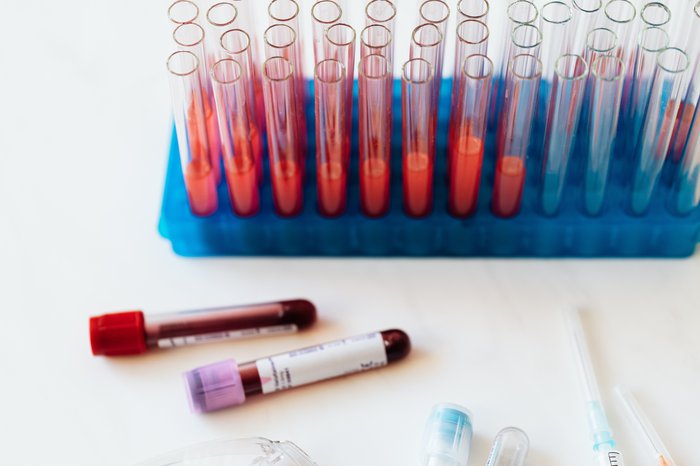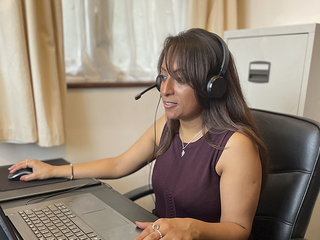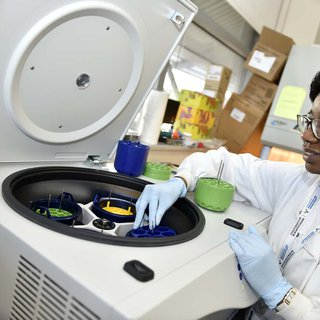What do covid antibody test results mean for people with blood cancer?
Many of our community have had an antibody test following their covid vaccine to understand what kind of response they’ve had. In this blog, we talk more about what antibody test results mean, what the evidence suggests is important in developing a response to vaccination and what other factors are important to think about.

Antibodies: what they mean and quality versus quantity
Antibody tests give you a sign of how you might have responded to the covid vaccine, but they don't give you the full picture of what your immune system is doing. But not having an antibody response does not mean you’ve had no response to the vaccine as other immune cells may also be involved in the response. If you've got antibodies, then on the face of it that's good news, but you should still be cautious. If you've not got antibodies then that's disappointing news and confirms the importance of being careful, but it doesn't necessarily mean you're not protected.
You might also be wondering why it’s not possible to put a number on the quantity of antibodies you need to be “protected” from the coronavirus. This is because there are two things at play: quantity of antibodies produced and the quality of them. It’s possible that someone might produce a higher number of antibodies that are low in quality and unable to fight infection. It’s also possible that someone might produce a lower number of antibodies that are high in quality which will be able to destroy the coronavirus. We just don’t know yet, and this will take time to understand.
To start to understand this, researchers can do something called a “neutralisation assay” which, in simple terms, involves taking someone’s antibodies, putting them in a dish with some coronavirus and looking to see if the antibodies are able to stop the virus from multiplying. This would suggest that the antibodies are functioning well. These aren’t tests you can pay to have, but researchers will be studying this, and we expect to understand more about this over the coming weeks and months.
It’s also important to remember that antibody tests you can buy tend to only look for one antibody – something called IgG. They use this in tests because it tends to be the antibody that lasts in our blood for the longest period of time, but other antibodies are involved too that the tests you buy might not look for. So, this means that antibody tests you might have bought may not give you the full picture.
Read more about these studies and what we've learned so far about vaccine efficacy and blood cancer.
Antibodies versus T cells
Antibodies are a type of immune cell and while antibody tests can give some information on how someone has responded to vaccination it doesn’t give the full picture. Another type of immune cell, called T cells, are also important but there aren’t tests readily available to buy that look for these cells. Both immune cells destroy viruses in slightly different ways, and it could be that if you don’t have antibodies to kill coronavirus, your T cells will takeover and vice versa. It’s going to take some time to understand which cells are most important in protecting people from covid follow vaccination, but we think both are important for people with blood cancer.
Real world data
A recent study looked at how mice responded to being infected with coronavirus. They found that in mice that had received the vaccine, antibodies were important and able to destroy coronavirus without the help of T cells. But in mice who hadn’t been vaccinated, they found that T cells were essential to clear coronavirus infection.
So, why were T cells so important to clear natural infection to covid but not infection following a vaccine? It’s a good question and we’re not really sure. Scientists in this study suggest that it might be that following vaccination and in healthy people, antibodies do such a good job at clearing the virus that their T cells can take a back seat. But of course, not all people with blood cancer develop antibodies and it might be in this case that T cells don’t take such a back seat and are essential in steering a successful immune response.
An American study that was published recently supports this idea that T cells might be particularly important in people with blood cancer. The study was small, but they looked at T cells in people with blood cancer who had developed coronavirus and also looked at this in people with solid cancer and those without cancer. In people with blood cancer, the T cells were much more activated than the other groups. They also found that people with blood cancer who had more T cells had a better chance of survival from coronavirus. This again suggests that in the absence of a functioning antibody response, T cells might take over in people with blood cancer.
Keep updated about coronavirus and blood cancer
Join our mailing list to keep updated about coronavirus, our work and the ways you can help, including campaigns and events that you might be interested in.
Other factors
We know how important it is for our community to feel safe and protected from coronavirus and the uncertainty around vaccines is difficult. But it’s also really important to remember that there are other factors involved. If the infection rate is low, it makes it much less likely that you will come into contact with the coronavirus. You may find it helpful to read our information on coping with the risk of coronavirus if you have blood cancer.
In the next few months we’re also hoping to get results from a trial called PROVENT, which is looking at whether infusing people who are immune compromised with antibodies could be an alternative way to protect people.
The Blood Cancer UK Vaccine Task Force will continue to monitor data and will provide you with updates when we get them.

Worried about anything or have questions?
If you need someone to talk to, please don't hesitate to contact our Support Service by phone or email.

